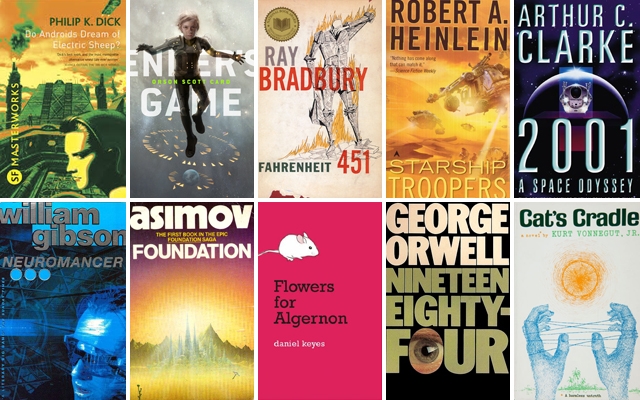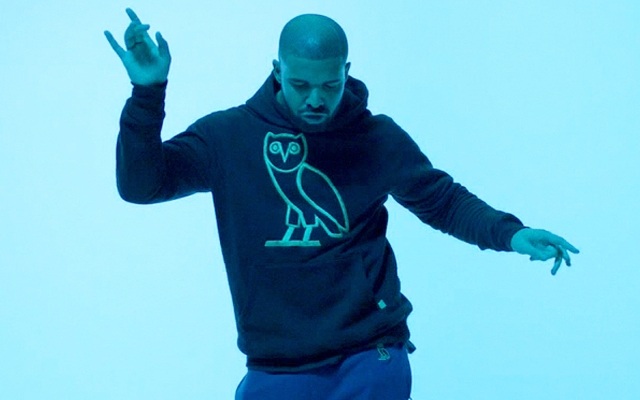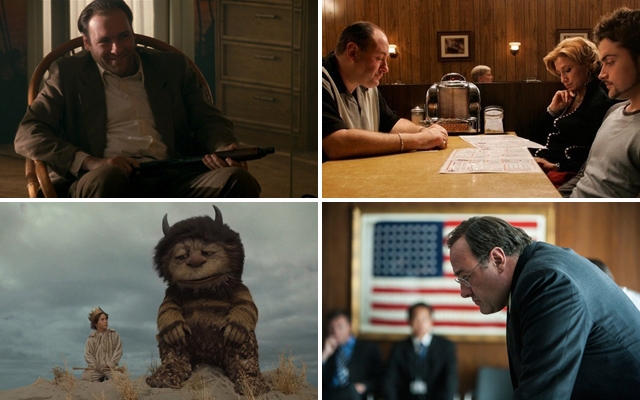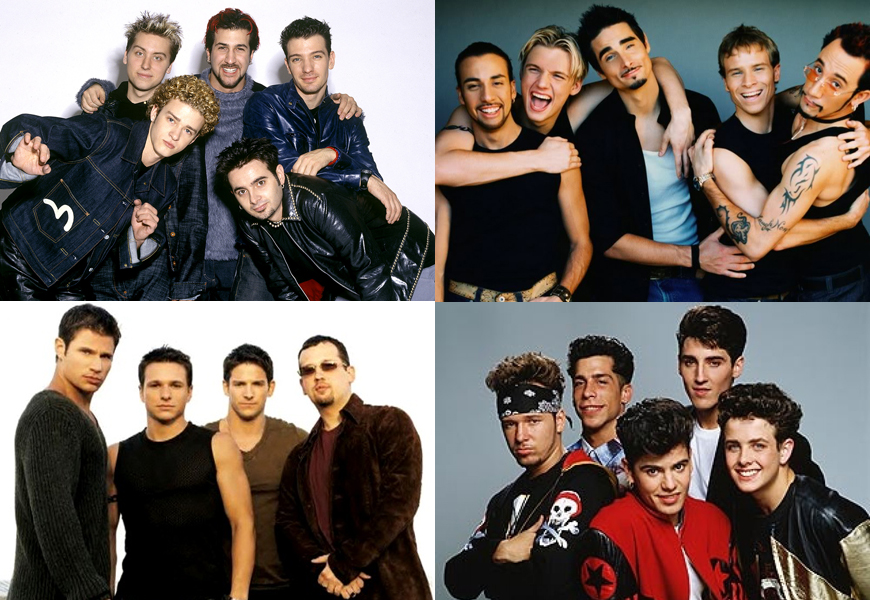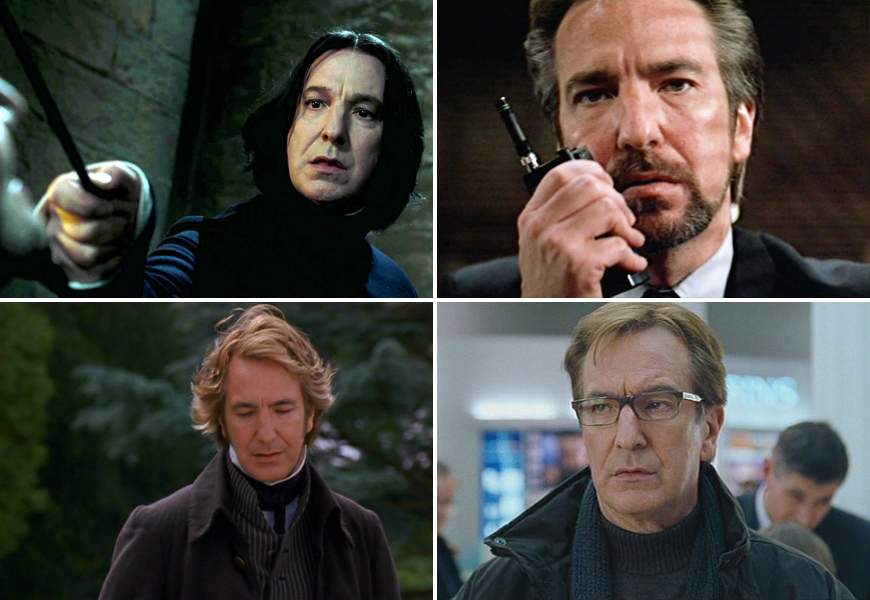There was a time when science fiction was one of the nerdiest genres out there. Series’ set in outer space, and worlds full of technology we could only dream of lined the sci-fi/fantasy section at bookstores. Now, the popularity of dystopian fiction (which is a branch of science fiction) has brought a lot more attention to the genre as a whole. Many commercial novels are now incorporating sci-fi themes, like advanced technology, life on other planets, and moral dilemmas like mind control, and cloning. Science fiction films have been popular for awhile, but the the novels that came before them deserve a read for their social commentary, and extreme detail of worlds that are closer to our own than we realize.
Here are 10 science fiction novels to add to your must-read list. Who knows, maybe one of them will even prepare you for our own imminent future.
Do Androids Dream of Electric Sheep? – Philip K. Dick
Philip K. Dick is a staple of the sci-fi genre. He wrote 44 novels, and over 120 short stories, although he never found mainstream success in his lifetime, despite the fact that 11 of his stories have been adapted into popular films. One of his most well-known books, Do Androids Dream of Electric Sheep? was the main literary source for the 1982 film Blade Runner. The novel is set in a post-apocalyptic world where most animals no longer exist, and androids make up half the population. It explores what it means to be human, and the importance of empathy.
Ender’s Game – Orson Scott Card
In this military-themed novel, children are mankind’s main hope for fending off a hostile alien race. Ender Wiggins is in the top of his class at Battle School, where he is learning tactical skills in order to become the next commander against the enemy. The novel won the Nebula Award and the Hugo Award, the two most prestigious award in science fiction. It was also adapted into a film, released last year. Card also wrote a sequel, entitled Speaker for the Dead, that was critically praised as well.
Fahrenheit 451 – Ray Bradbury
If dystopian novels are your thing, Ray Bradbury’s Fahrenheit 451 is a must-read. Set in a future where books are outlawed, and “firemen” burn all that are found, the novel focuses on the damage censorship does to society. The dangers of an illiterate society that relies on mass media for all of its information is also at the forefront of the book. The themes in Bradbury’s most famous work are still relevant today, and can even be interpreted in new ways in relation to the constantly changing publishing industry.
Starship Troopers – Robert A. Heinlein
The 1997 film adaptation of Starship Troopers is nothing compared to the novel. Another example of military science fiction, the novel follows a young man through military boot camp, to the harsh realities of war against another species. The commentary on war is still as relevant today as it was when the book was published in 1959, and the battle scenes make it a page turner. It also won the Hugo Award in 1960, so try not to judge this book based on its movie.
2001: A Space Odyssey – Arthur C. Clark
If you have seen the Stanley Kubrick film of the same name, then you have to read the novel, because the two were created to complement each other. Arthur C. Clark worked with Kubrick on the script for the film, while simultaneously writing the novel. The novel explains more explicitly the concepts that are brought up in the film regarding alien life and how it relates to human evolution.
Neuromancer – William Gibson
The Cyberpunk sub genre of sci-fi started with William Gibson’s novel about a computerized world, that is close to our reality today. It was published 20 years ago, but many of the ideas that seemed so far fetched then, have actually come true. Neuromancer is set in a dystopian universe where cyberspace has almost completely replaced reality, which could be seen as an allegory for how reliant we all are on the internet today. The book was the first ever to win the science fiction “triple crown”: The Hugo, Nebula, and Philip K. Dick awards.
Foundation – Isaac Asimov
You may recognize Asimov as the writer of the original novel that was adapted into the film I, Robot. But his real masterpiece and iconic addition to the science fiction genre is his Foundation series. The main idea in the series is the concept of “psychohistory”, which is a fictional branch of science that combines sociology, history, and mathematics to predict the future. According to psychohistory, the current empire has a long, dark age looming ahead unless certain steps are taken to preserve human knowledge. The series is less about action scenes, and more about big ideas, and it won a one-time Hugo award for “Best All Time Series” in 1966.
Flowers for Algernon – Daniel Keyes
Algernon is a lab mouse who has undergone surgery to increase his intelligence by artificial means, and Charlie Gordon is the first human test subject for the same surgery. Flowers for Algernon follows Charlie as his life changes because of his first increasing, and then decreasing intelligence. The novel touches on themes like the moral treatment of people with disabilities, and what it complications that come along with high intelligence. Originally a short story, it was published as a novel in 1966, and it won that year’s Nebula Award for Best Novel.
Nineteen Eighty-Four – George Orwell
If you haven’t read 1984 yet, put it at the top of your list now. It is the story of Big Brother (an all-seeing, all-knowing version of government), and how people will always rebel, even if obedience is all they have ever known. This novel introduces concepts such as “thoughtcrime” (the crime of simply thinking socially unacceptable thoughts), and follows Winston, a man who learns the consequences of going against the government. Nineteen Eighty-Four is the perfect example of political science fiction.
Cat’s Cradle – Kurt Vonnegut
Kurt Vonnegut may be best known for his novel Slaughterhouse Five, but Cat’s Cradle is an example of him using the science fiction genre to satirize war and the always closely connected arms race. Scientists are constantly working towards new advancements in medicine, and sometimes, they discover things they weren’t actually looking for. The main character, Felix, is a physicist who inadvertently invents a substance called ice-nine that seems beneficial at first, but turns into something he wasn’t expecting. If you like humour in your sci-fi then Vonnegut is the author for you.

